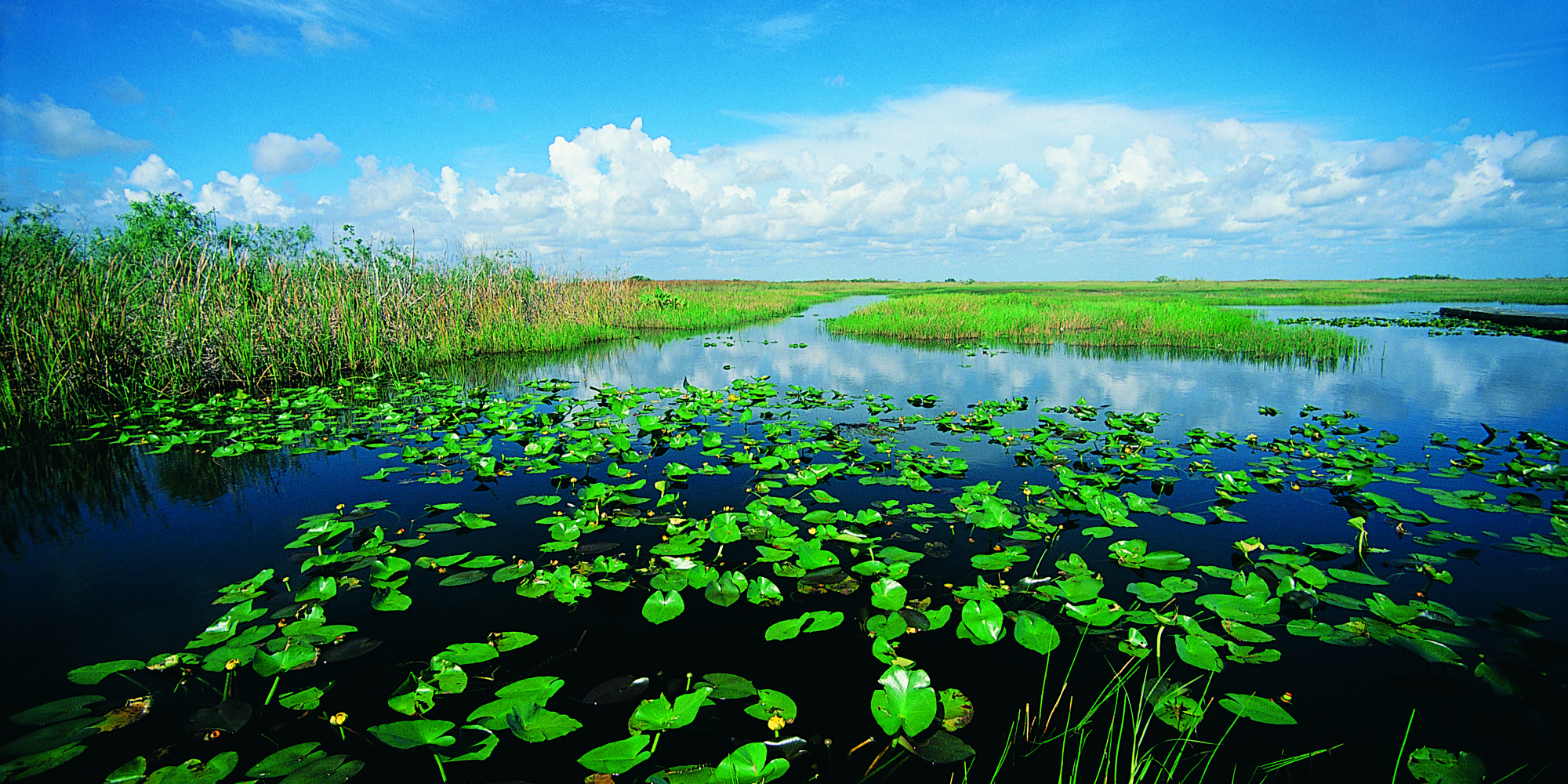Marjory Stoneman Douglas writes a beautiful passage on the
Everglades in Nature of the Everglades.
She details all of the little quirks that distinguish the Everglades from any
other type of environment found in the US. It has made a name for itself so
much that dictionaries tend to end their definitions of an everglade with a
reference to the Florida Everglades (Douglas, 106).

http://www.nswoodphotography.com/assets/images/Everglades_009.jpg
I enjoyed Douglas’ way of saying that the Everglades is
something that is consistently changing even through its long existence,
showing that this must be understood before one can take in all of its “wholeness”
(Douglas, 107). She further goes on to say that there is a perfect balance with
man and nature in this place (Douglas 107). To me, this is comforting to know
that there are parts of the world that people are not trying to destroy, or are
fighting tooth and nail to take over because it is blatantly known that this
piece of land has helped give Florida its beautiful scenery.

http://i.huffpost.com/gen/1427863/images/o-EVERGLADES-FLORIDA-facebook.jpg
I will go on to say that Douglas did not try to exude her
strong opinions onto us, as some other authors of passages that have been read
previously. Therefore, it is hard for me to challenge her on any specific topic
but I do feel that Douglas could have elaborated more on the subjects she
mentioned. For instance, part IV details the relationship between life and the
land in the everglades and discusses the smaller animals and insects that can
be found in there. I wish she had elaborated more on the tree snails and the
moths and butterflies, giving us an idea of maybe the benefit each one
possesses to this land (Douglas, 141). We learned in class that every part of a
nature pyramid is dependent on the things below it and the things above and below
are impacted by their existence. So furthering the details on these pieces of
life could have been more relatable to class, and given more insight on the functioning
of life in the Florida Everglades.

http://www.livingwilderness.com/everglades/florida-tree-snail.jpg
As far as a ‘muddiest point’ goes, I did not recognize that
otters lived in the Everglades! As a Florida native, I feel this is something I
should have known, but I am glad that Douglas was able to bring this to my
attention (Douglas, 144). Also, Douglas mentioned the intensity of the
hurricanes and how they affect the Everglades, but I wanted to learn more about
it (Douglas, 119)! Maybe how the land anticipates a storm and how it recovers
from the storm? I recognize that this is a passage written in 1988, but it
would be neat to look into the damages of recent storms from the early 2000s.

http://sunnyscope.com/wp-content/uploads/2012/12/florida-otter.jpg




